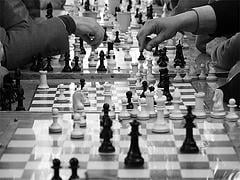Study Habits for Success

For most students, the first month of school is spent devising schedules and familiarizing with teachers and subjects. That is, until the first exam. Once you've undertaken the first test or quiz for each subject, you can judge how difficult the material is. If you didn't perform to your standard in a class, now is the time to consider your study habits.
If you’re reading this, you are a student who cares about your grades and future. You may be searching for the right approach to study efficiently. With all their classes, activities and extracurriculars, students have little time to study and no time to waste. If you fit into the “busy student” category, look no further for the do’s and don’ts of effective studying.
Optimizing Classroom Time
While you're probably taking notes and paying attention in class, you may not be doing so efficiently. Many students rely on technology in school for everything from class participation to research to note-taking. However, studies have shown that using an old-fashioned pen and paper will serve you better. Here are some tactics for taking useful notes.
- The Paper Approach
Take your notes during lectures or activities by hand. Don’t record the session or type your notes. The act of shorthand note-taking forces our minds to draw conclusions and reword ideas for better comprehension.
- Organize Your Thoughts
Try to write clearly and organize your thoughts as you go. Connect information logically for easier review. For some people, this may mean using different colored inks for a visually separate view, or multiple sheets of paper. Either way, do what works for you to make looking for details in your notes easier.
- Avoid Copying
Verbatim note taking may seem like the best approach. However, to relate and retain information, you should use your own words. Actively listen and explore ideas during class, then describe your thought process in your notes.
Making Information Stick
Once you've mastered note taking, studying is much more straightforward. However, there are still some strategies which can help you remember and recall details for any subject. Depending on the class, you will want to employ different study strategies. But one rule is universally true: simply rereading information does not help memory or comprehension. So, avoid spending hours casually reading your notes. Instead, use your thorough notes to help you with the following approaches.
- Relate Details for Better Retention
Your brain will remember details it finds relevant or interesting. That's why we can remember our favorite shows line-for-line, or our best friend's birthday every year. So, if you're studying history, literature, English, French, or any other subject requiring a strong memory recall, make it matter.
Focusing on a particular event that you find compelling;relating your timeline to that event will help you remember historical dates. Using music or visual aids may help you in language. For example, consider watching relevant videos to help you remember French pronunciation.
- Working Through, Not Rereading
For any subject that requires you to solve problems or use formulas, don't study by reviewing your notes or reading past worksheets. Solve new problems or rework past ones from scratch, engaging in hands-on practice wherever possible. Your notes can serve as helpful reminders as you work through math or science concepts and develop the skills you'll need for future exams.
If you are using an online study guide, take advantage of practice questions for each subject. Engage your mind in active problem solving during your review sessions for optimal results.
Managing Time Effectively
While you may have heard that cramming doesn’t work, you’re probably guilty of trying it a time or two. With so much to do, it often seems impossible to study for a test ahead of time or to continually practice and review every subject. However, the reality is that spending hours reading your notes the night before won’t help raise your exam scores. Your late night cram session may even impede your test taking ability. Why? Sleep and stress.
- Sleep is Key
No one operates at their best when tired, you included. If you spend the night cramming, your brain will be tired and unlikely to recall much of you reviewed. Instead, take a study break the night before your test. Eat a healthy meal to boost brain activity, and get some rest. Wake up feeling refreshed and eat a good breakfast.
- Don’t Stress Your Brain
Stress causes your brain to work slowly and inefficiently. So, spread out studying for any exam over several days, and allow yourself breaks during study sessions. Be sure to eat healthy snacks while you review, and try not to overfocus on any one area. Try to be aware of what will be covered on a given test to avoid wasting time.
Unplug for Focused Review
While you will likely need your computer for an efficient study session, disconnect from social media and silence your cell phone. Don’t play distracting television or music in the background. Try to work somewhere with minimal interruptions and work on a schedule. Allow yourself breaks for food and to move around. During your breaks, avoid the temptation to tweet or text.
It's well known that we have a hard time recovering each time we lose focus. For that reason, minimizing distractions is essential to success.
Seeking Out Help
If you feel that you’re unable to organize an effective study routine on your own, don’t be afraid to enlist help. You can join study groups, hire a tutor, or enroll in an online program. Take advantage of whatever resources you have to make sure your study time isn’t wasted time.
Throughout the year you will be taking many quizzes and exams. If you find that you’re struggling in any subject, take a hard look at your study habits. You may need to make adjustments as time goes on. Remember that planning ahead and working through problems will always beat impromptu cram sessions. Don’t let poor study habits hold you back from success.


